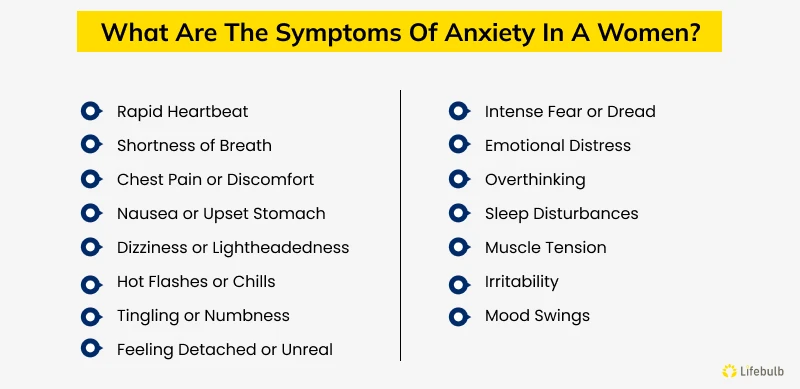Anxiety is a common mental health issue that affects millions of people around the world, with women being more likely to experience anxiety disorders than men. While it is normal for everyone to feel anxious at times, prolonged or excessive anxiety can have a significant impact on a woman’s well-being and quality of life. In this article, we will explore some common signs of anxiety in women and provide coping strategies to help manage this condition.
Signs of Anxiety in Women
1. Physical Symptoms:
– Restlessness or feeling on edge
– Muscle tension
– Fatigue
– Difficulty sleeping
– Rapid heartbeat
– Shortness of breath
2. Emotional Symptoms:
– Excessive worry
– Irritability
– Difficulty concentrating
– Fear of losing control
– Persistent feelings of dread or doom
3. Behavioral Symptoms:
– Avoiding certain situations or activities
– Compulsive behaviors
– Difficulty making decisions
– Increased use of alcohol or drugs
– Social withdrawal
It is important to note that anxiety can manifest differently in each individual, and not everyone will experience all of these symptoms. If you are concerned about your mental health, it is essential to seek help from a healthcare professional.
How to Cope with Anxiety
1. Practice Mindfulness:
– Mindfulness techniques, such as deep breathing and meditation, can help calm the mind and reduce anxiety symptoms. Practice mindfulness regularly to develop a greater sense of awareness and control over your thoughts and emotions.
2. Exercise Regularly:
– Physical activity is a powerful tool for managing anxiety. Regular exercise can release endorphins, improve mood, and reduce stress. Aim for at least 30 minutes of moderate exercise each day, such as walking, yoga, or cycling.
3. Establish a Routine:
– Creating a daily routine can help reduce feelings of unpredictability and provide a sense of stability. Set aside time for self-care activities, relaxation, and social connections to maintain a balanced lifestyle.
4. Connect with Others:
– Social support is crucial for managing anxiety. Reach out to friends, family members, or a therapist for emotional support and guidance. Talking to someone you trust can help alleviate feelings of isolation and loneliness.
5. Limit Stressors:
– Identify sources of stress in your life and take steps to minimize their impact. Set boundaries with work, prioritize tasks, and delegate responsibilities when needed. Learning to say no and prioritize your well-being is essential for managing anxiety.
6. Seek Professional Help:
– If your anxiety symptoms are severe or persistent, consider seeking help from a mental health professional. Therapy, medication, or a combination of both may be recommended to help you manage anxiety more effectively.
Conclusion
Anxiety is a common mental health condition that can significantly impact women’s lives if left untreated. By recognizing the signs of anxiety and implementing coping strategies such as mindfulness, exercise, routine, social connections, stress management, and professional help, women can effectively manage their symptoms and improve their overall well-being. Remember, you are not alone in your struggle with anxiety, and help is available to support you on your journey to mental wellness.

